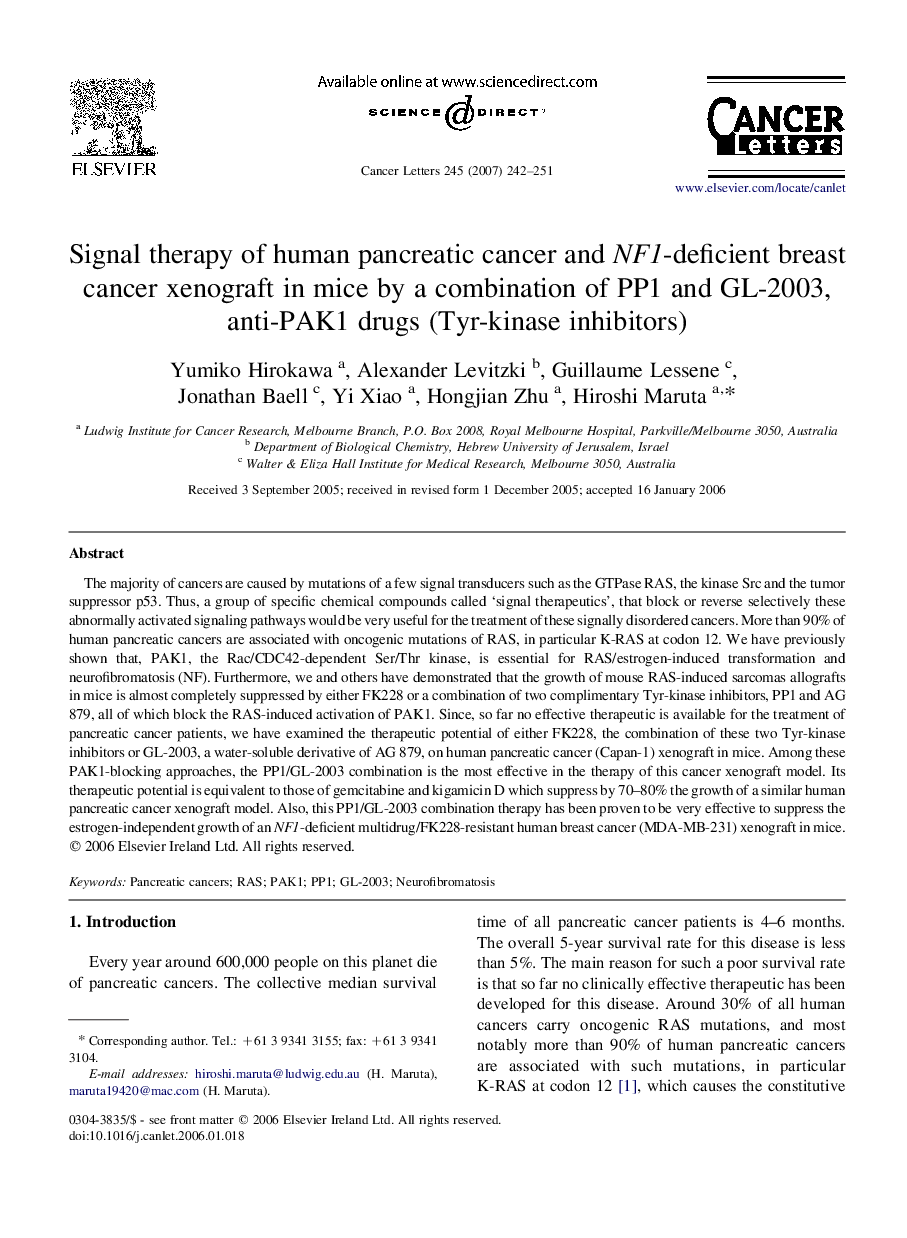| کد مقاله | کد نشریه | سال انتشار | مقاله انگلیسی | نسخه تمام متن |
|---|---|---|---|---|
| 2115449 | 1546703 | 2007 | 10 صفحه PDF | دانلود رایگان |

The majority of cancers are caused by mutations of a few signal transducers such as the GTPase RAS, the kinase Src and the tumor suppressor p53. Thus, a group of specific chemical compounds called ‘signal therapeutics’, that block or reverse selectively these abnormally activated signaling pathways would be very useful for the treatment of these signally disordered cancers. More than 90% of human pancreatic cancers are associated with oncogenic mutations of RAS, in particular K-RAS at codon 12. We have previously shown that, PAK1, the Rac/CDC42-dependent Ser/Thr kinase, is essential for RAS/estrogen-induced transformation and neurofibromatosis (NF). Furthermore, we and others have demonstrated that the growth of mouse RAS-induced sarcomas allografts in mice is almost completely suppressed by either FK228 or a combination of two complimentary Tyr-kinase inhibitors, PP1 and AG 879, all of which block the RAS-induced activation of PAK1. Since, so far no effective therapeutic is available for the treatment of pancreatic cancer patients, we have examined the therapeutic potential of either FK228, the combination of these two Tyr-kinase inhibitors or GL-2003, a water-soluble derivative of AG 879, on human pancreatic cancer (Capan-1) xenograft in mice. Among these PAK1-blocking approaches, the PP1/GL-2003 combination is the most effective in the therapy of this cancer xenograft model. Its therapeutic potential is equivalent to those of gemcitabine and kigamicin D which suppress by 70–80% the growth of a similar human pancreatic cancer xenograft model. Also, this PP1/GL-2003 combination therapy has been proven to be very effective to suppress the estrogen-independent growth of an NF1-deficient multidrug/FK228-resistant human breast cancer (MDA-MB-231) xenograft in mice.
Journal: Cancer Letters - Volume 245, Issues 1–2, 8 January 2007, Pages 242–251